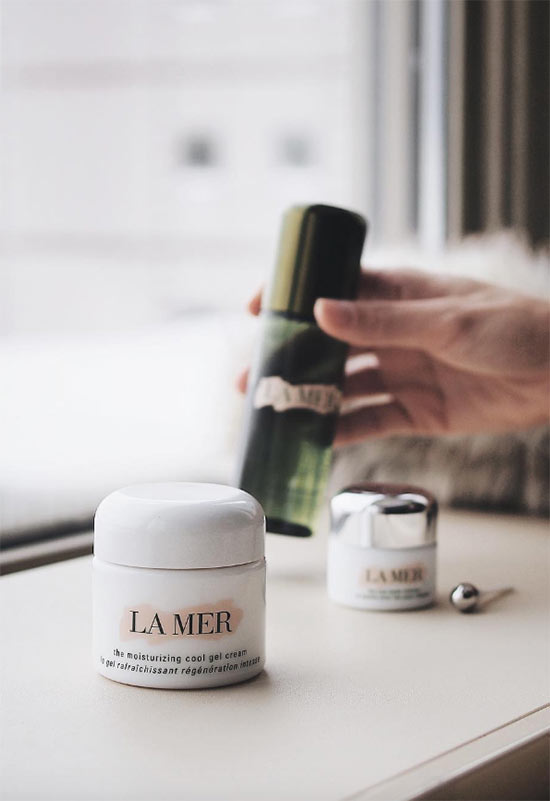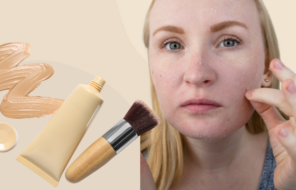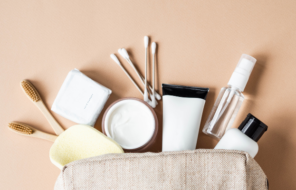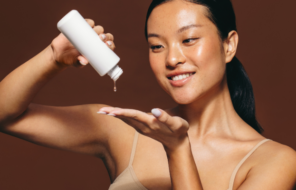Have you heard of fermented or probiotic skin care yet? Does probiotic skin care really work? Are probiotic skincare products better for you? Let’s dive deep and answer all the questions, including the pros and cons of fermented skin care, what it really does, and how to best use it.
In this article:
- What Is Probiotic Skin Care?
- How Does Probiotic Skin Care Work?
- What Is Probiotic Skin Care Good for?
- How to Identify Probiotic Skincare Products
- Probiotic Skin Care Pros & Cons
- How to Use Fermented Skincare Products
What Is Probiotic Skin Care?
Fermented or probiotic skin care refers to skincare products loaded with good bacteria, usually from fermented natural ingredients. Probiotic superfoods like yogurt, kombucha, kefir, and kimchi are products that have gone through a fermentation process.
To ferment any sort of organic material, a microorganism (usually, and especially in the context of skin care, bacteria) has to be added to it. The bacteria releases enzymes that break down the natural ingredient and changes its molecular structure.
In recent years it has become very popular to add ingredients that have undergone fermentation to skincare products because they are said to have a variety of benefits to the skin – but do they really? Let’s find out – but first…
Bacteria on the Skin, Really?!
There is a ton of bacteria sitting on your skin. This may sound scary, but bacteria are not inherently a bad thing. Some of these bacteria are bad (looking at you, acne bacteria!), while others are essential to keeping our skin functioning well!
The collection of bacteria on our skin is called our skin’s microbiome, with the good bacteria referred to as “resident bacteria” and the bad bacteria referred to as “transient bacteria”. You can think of the good bacteria as the good tenants that live on your skin, keep it clean, and pay the rent on time, while the bad bacteria crashes on your skin, sleeps on the couch, and leaves a mess behind.
When the skin’s microbiome gets thrown off balance, the transient bacteria can proliferate while the resident bacteria die off, leading to issues like irritation, sensitivity, and acne.
How Does Probiotic Skin Care Work?
The job of probiotic skincare products is to restore balance to the skin’s microbiome, and increase the quantity of good bacteria in the skin. In addition to that, probiotic ingredients have been shown to significantly improve the skin’s ability to remain hydrated. This is likely because when the skin’s microbiome is healthy, it is better able to produce natural humectants and attract moisture into the skin.
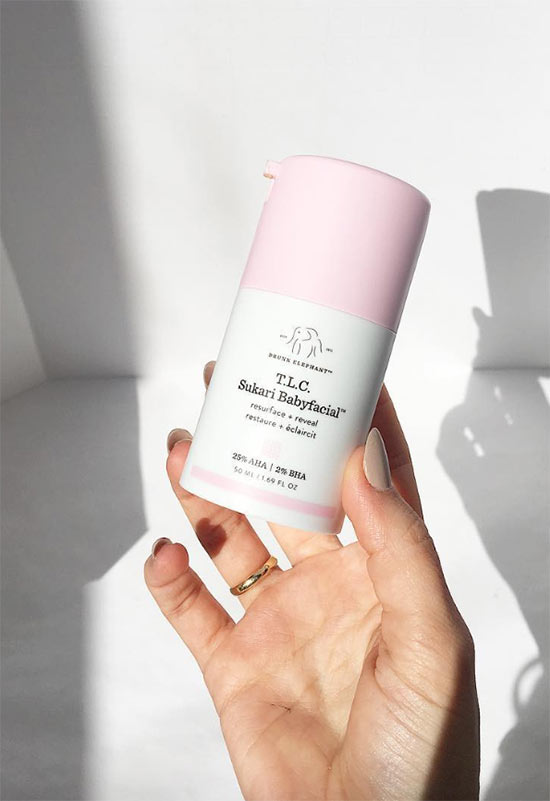
Some brands will claim that by fermenting the ingredients, they become smaller and better able to penetrate into the skin. However, because the ingredients are broken down by the fermentation that also means that their behaviour and impact on the skin might change completely, so it’s important to be skeptical regarding this claim.
In some instances it is true that fermentation increases the activity of some ingredients, like in the case of red ginseng, which becomes a better anti-aging and skin-brightening ingredient once fermented, or soy milk extract, which becomes better at triggering hyaluronic acid production in the skin (in turn improving the skin’s hydration levels and overall appearance).
What Is Probiotic Skin Care Good for?
Still struggling to understand the benefits of probiotic skin care? Here they are:
- It strengthens a compromised skin barrier, allowing the skin to function better and feel stronger. This is especially important for thin and easily irritated skin.
- Fermented skincare products increase the skin’s ability to retain moisture and stay hydrated, which is fabulous for chronically dry or dehydrated skin.
- It prevents the skin from becoming red and irritated too easily.
- Keeps the skin’s pH healthy and balanced.
- Probiotic skincare products improve the functioning of other skincare ingredients, making for overall more powerfully hydrating and anti-aging skin care.
How to Identify Probiotic Skin Care Products
Brands don’t always advertise their products as probiotic, although if they do you can assume that the product contains some ferments and good bacteria. Otherwise, a simple glance at the ingredients list will let you know if the product includes fermented ingredients.
The word “ferment” or “ferment extract” as part of the name of an ingredient is a sure sign of probiotics. You can also look for specific bacteria, like Lactobacillus, Bifidobacterium, and Vitreoscilla.
Probiotic skincare products usually feature such ingredients as sea kelp, ginseng, fermented mineral extracts (zinc, copper or magnesium) or fermented olive leaf extract. Serums, masks, creams, gel cleansers, lotions and exfoliating peels are some of the common probiotic skincare products available on the market.
Probiotic Skin Care Pros & Cons
As always, there are both pros and cons to know about probiotics for you to understand whether this is the right skincare solution for you.
Pros
- It’s a gentle and effective way of hydrating and strengthening the skin.
- Boosts the effects of other skincare ingredients.
- Usually comes in light formulas, rather than heavy creams.
- Works even when used a single time, so excellent as an occasional mask.
Cons
- Fermented or probiotic skin care is not for everyone. It could worsen skin conditions caused by fungal infection like fungal acne.
- Probiotic ingredients are inherently less stable than most skincare ingredients, so they do require very careful formulation. They have to come in airtight containers, and you want to make sure you purchase them from a brand with a great reputation. Improperly formulated probiotic skincare products can end up hurting the skin rather than improving it.
How to Use Fermented Skincare Products
Fermented skin care comes in all kinds of formulas, although most frequently you will see in toners, essences, and masks. Since ferments improve the humectant functioning of the skin, these kinds of products go into the middle of a skincare routine, after actives and before moisturizers. In cleansers, probiotic ingredients make less sense since they don’t stay on the skin long enough to make an impact.
To add a probiotic toner or essence to your routine, you will want to start using it in the following order:
- Cleanser
- Actives (vitamin C serums, chemical exfoliants, etc.)
- Probiotic essence
- Moisturizer
If you’re using a moisturizer with probiotic ingredients, simply use it at the end of your routine.
Photos via @ttroubletaker, Instagram

